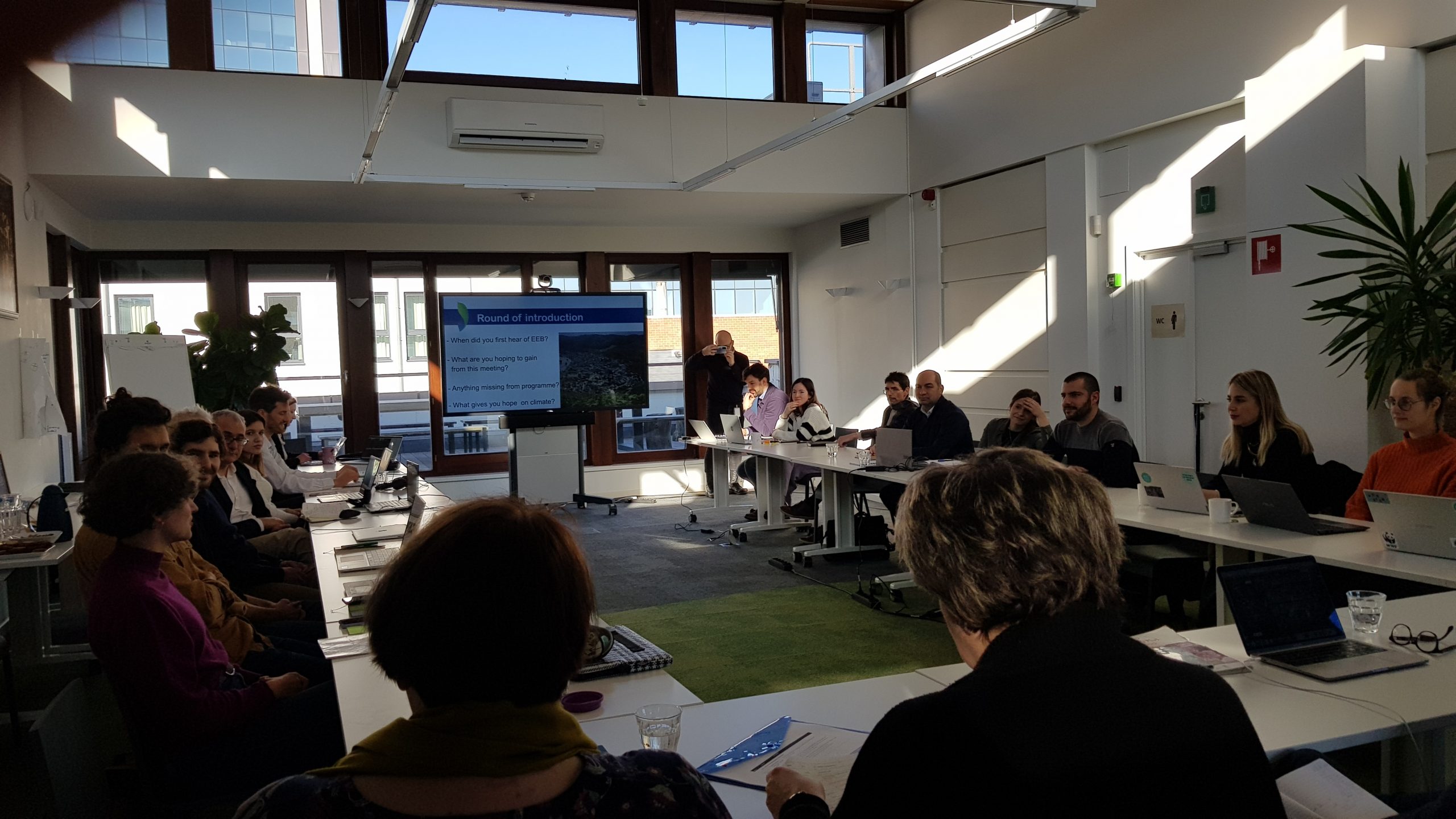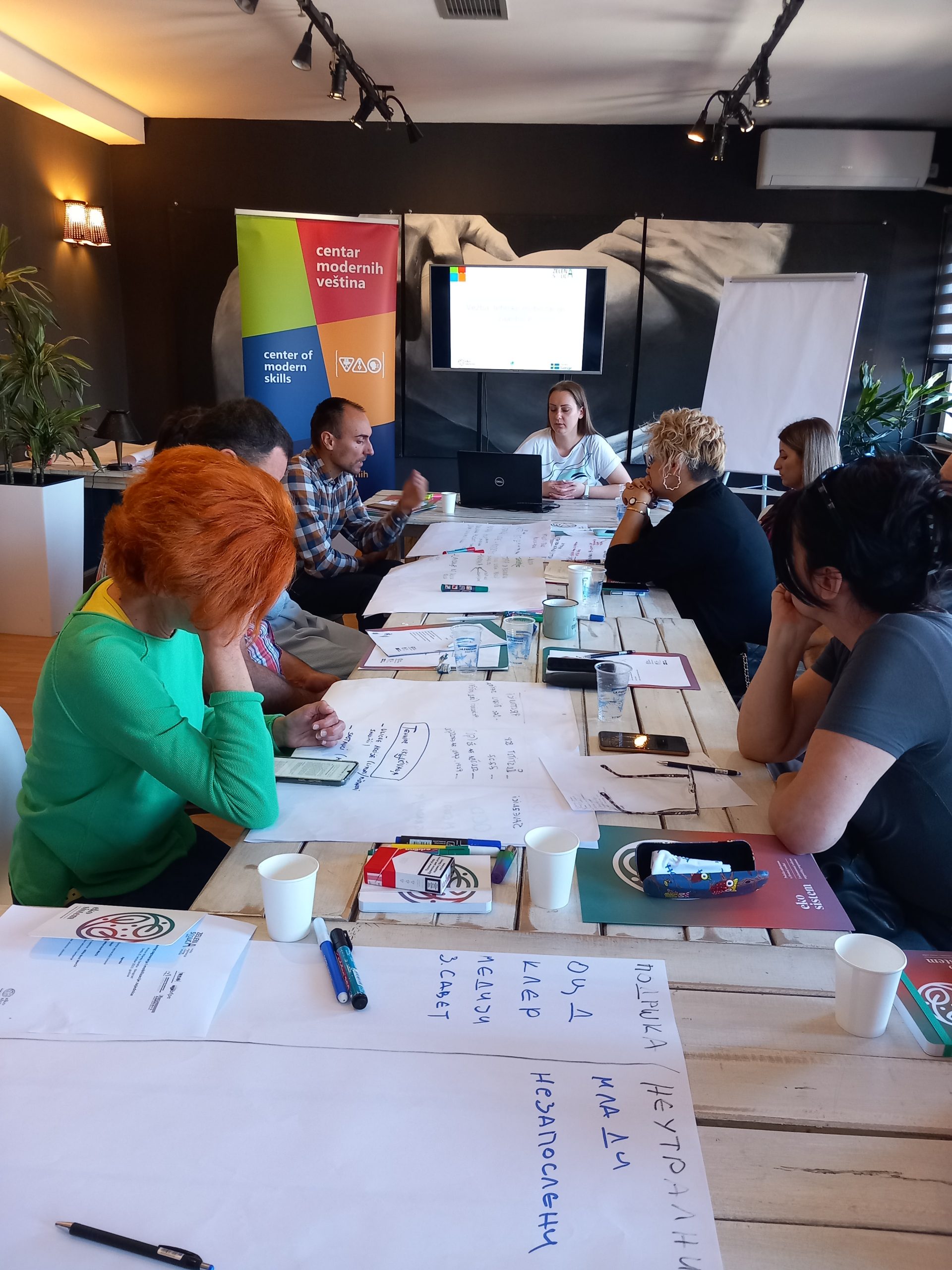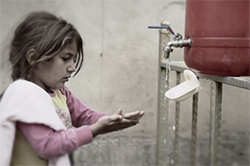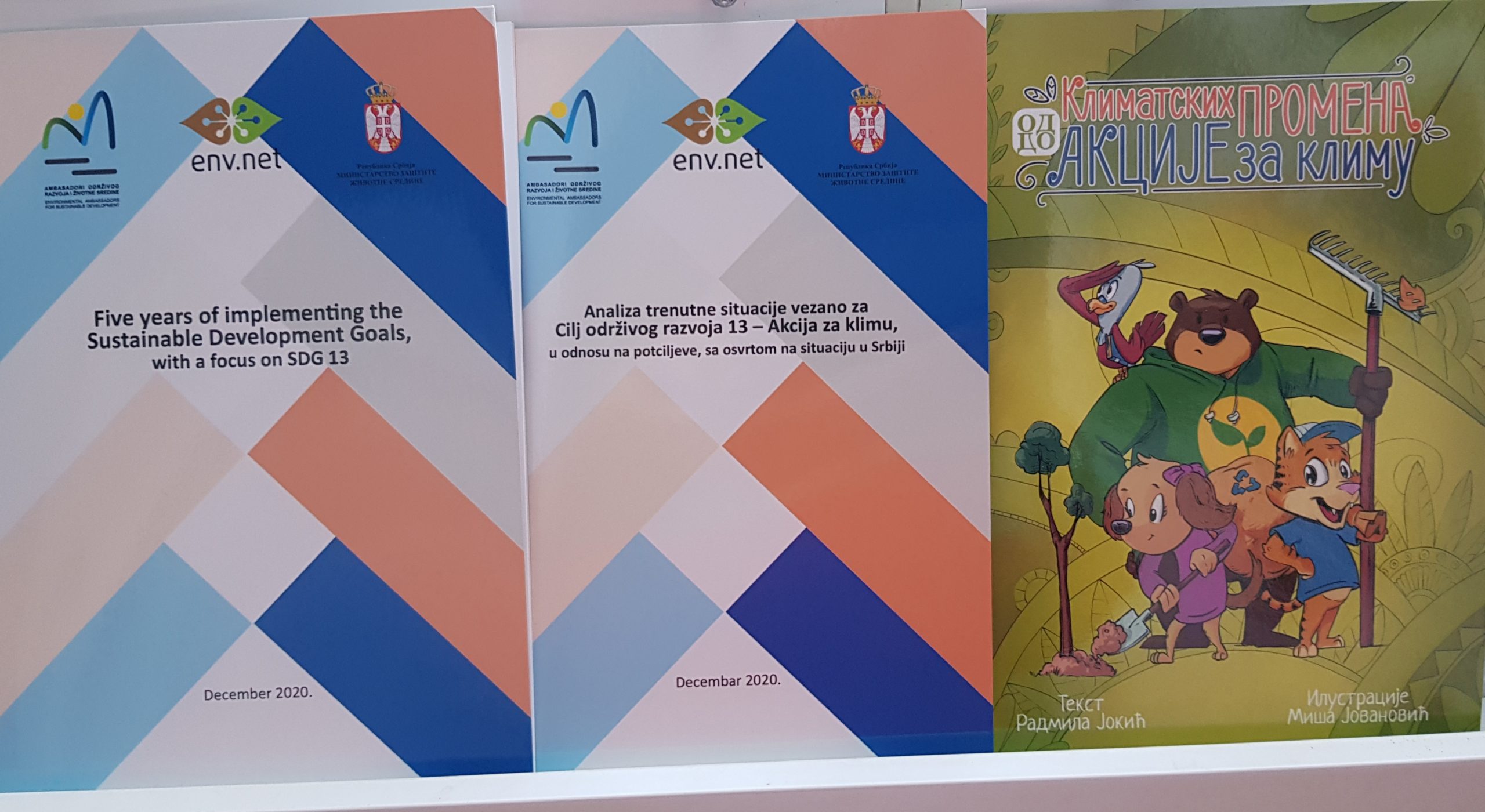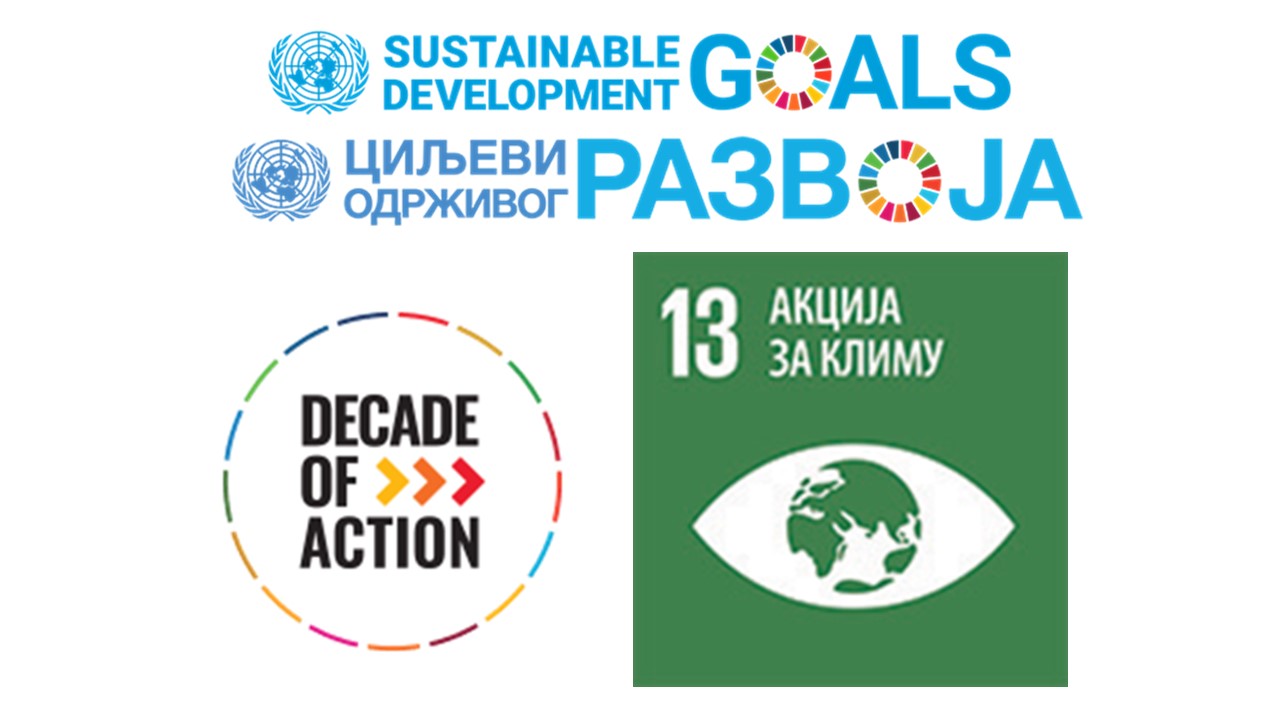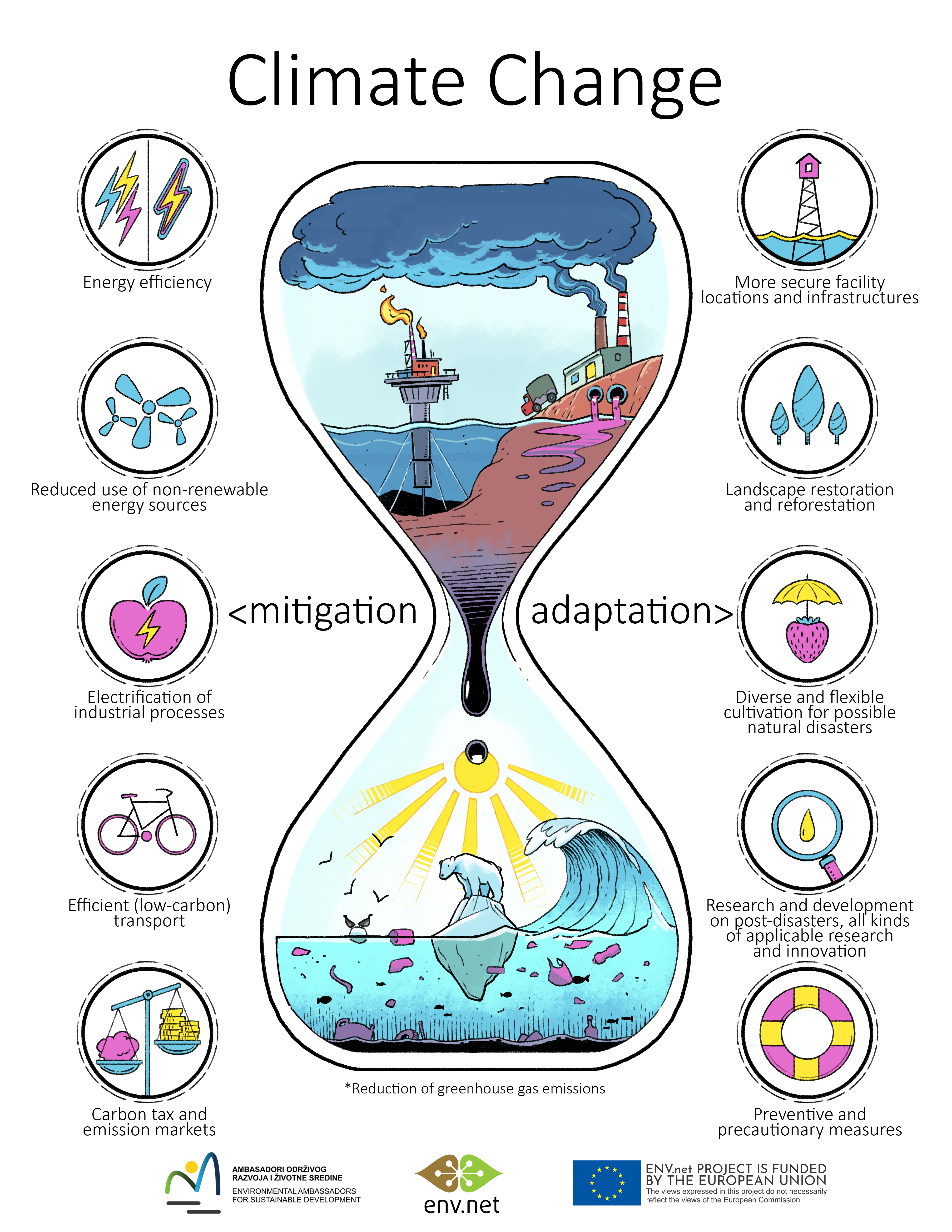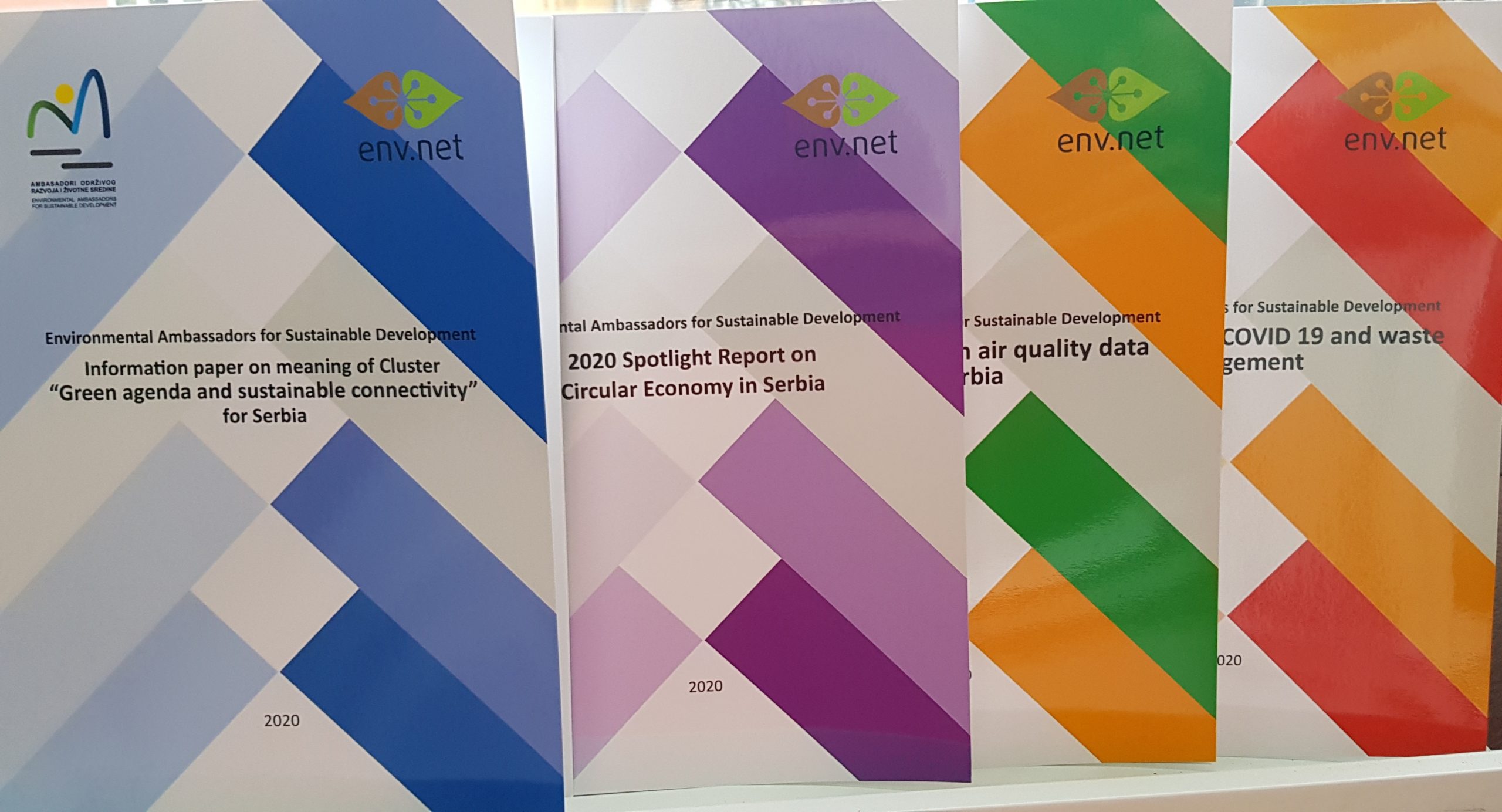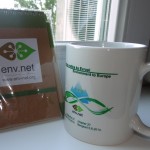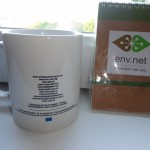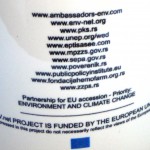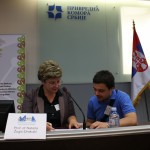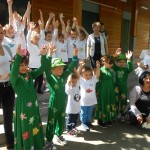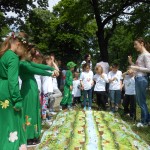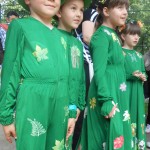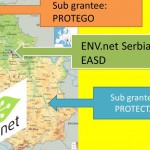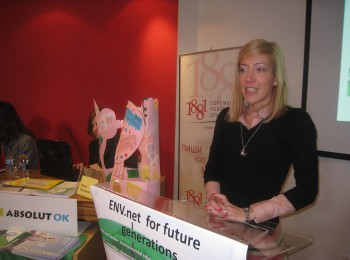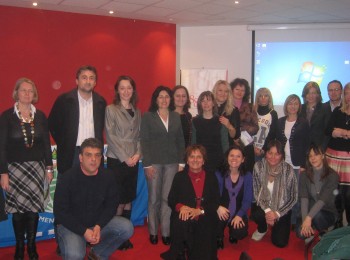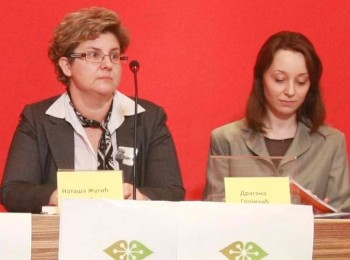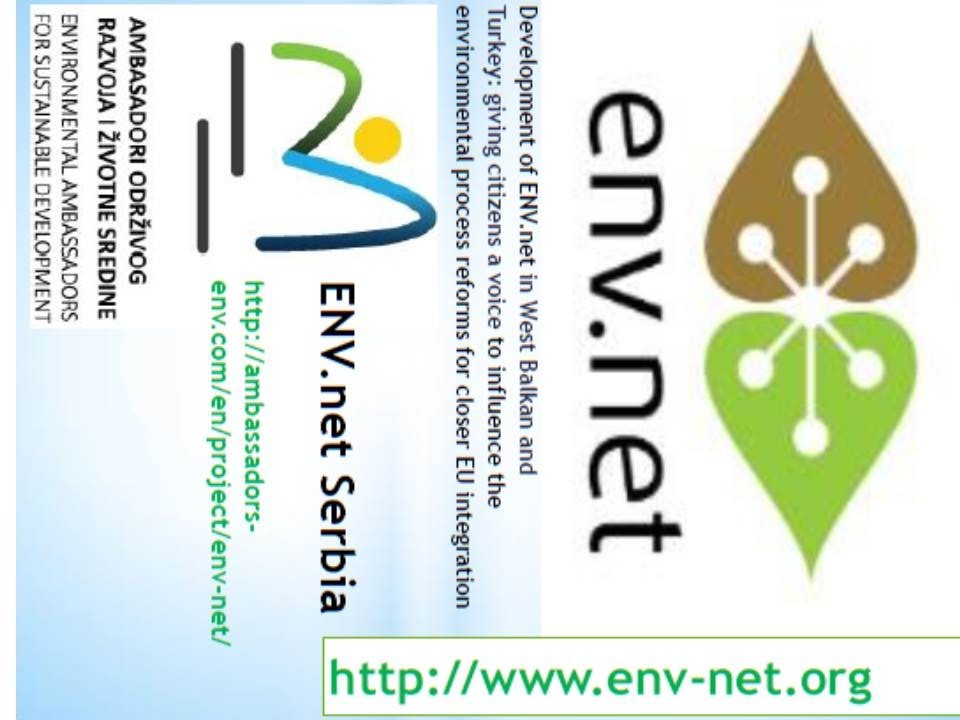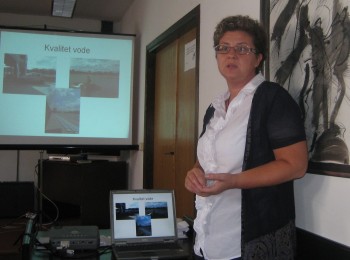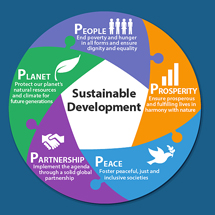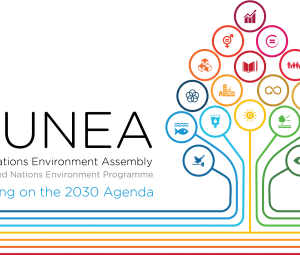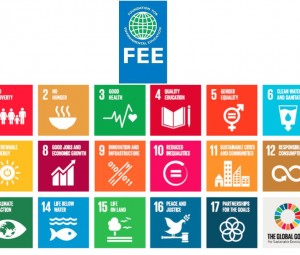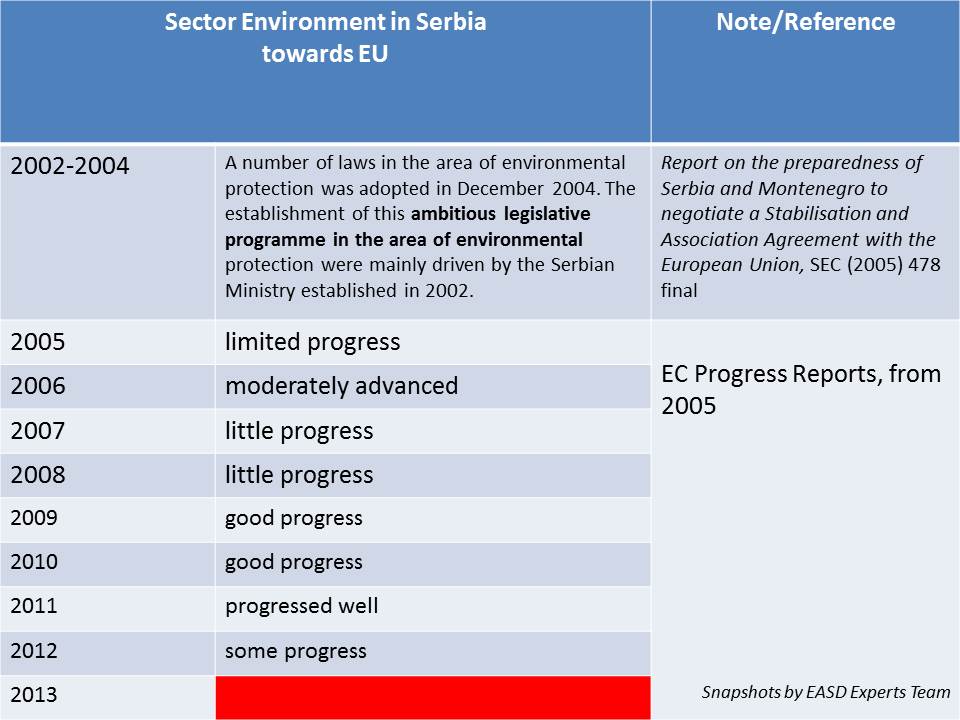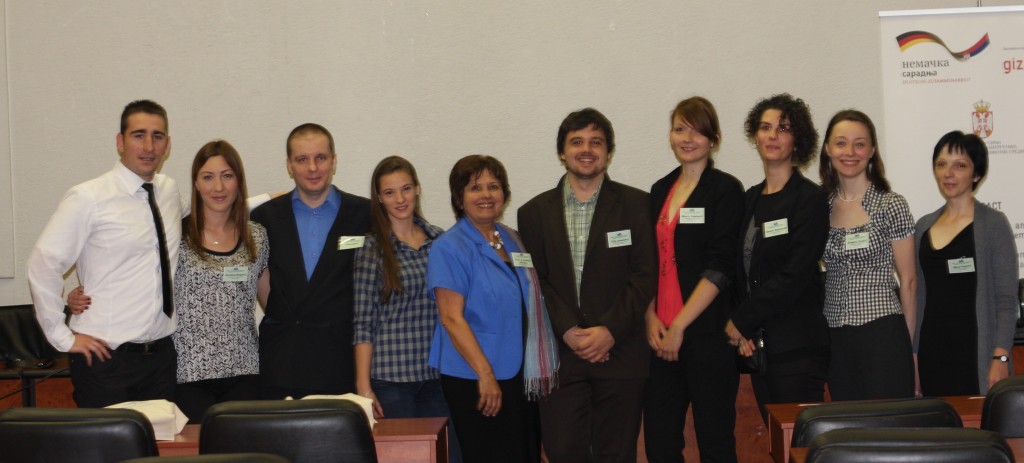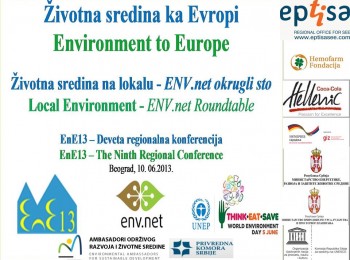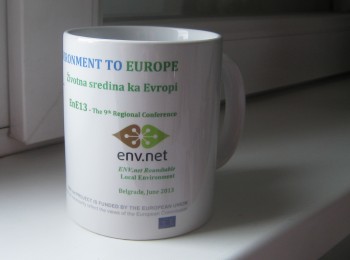In focus: Analysis of the President of the Commission, Ursula von der Leyen’s, State of the Union (SOTEU) speech
EEB (EASD is the Member of EEB) analysis on the state of “delusion highlight” – the President of the Commission, Ursula von der Leyen’s, State of the Union (SOTEU) speech, September 2025. The Commission President referred to the power of the European Green Deal and the need to stay on course of climate neutrality by 2050, but she also celebrated the recent and upcoming omnibuses many of which jeopardise the Green Deal objective.
Action is followed by the letter sent to all EU Environment Ministers, sharing the EEB’s input ahead of the upcoming EU Environment Council Meeting in Brussels on 18 September 2025.
Key points addressed are the proposal to amend the European Climate Law to establish a binding intermediate climate target for 2040 (–90% GHG emissions compared to 1990 levels), as well as the EU’s updated nationally determined contribution (NDC) for 2035 to be submitted to the UNFCCC ahead of COP30.
To ensure the EU’s long-term budget delivers the predictability needed to meet our strategic priorities—including ecological transition and health protection—EEB call on EU Environment Ministers to consider the following essential adjustments in the upcoming negotiations:
• Allocate at least 50% of the next EU budget to genuine climate and environmental investments and dedicate at least 10% to biodiversity, to reflect growing investment needs inter alia stemming from the new Nature Restoration Regulation.
• Improve the “mainstreaming” of the environmental objectives across the entire EU budget based on robust tracking methodologies, ex-ante earmarking of funds, as well as closing the loopholes in the application of the Do No Significant Harm principle to ensure harmful subsidies are phased out of the EU budget.
• Establish a clear and dependable budget for long-term EU priorities, with dedicated funding for LIFE programme objectives. For more than 30 years, the LIFE programme has served a wide range of stakeholders, encouraging cooperation to address the increasing risks emanating from climate change and environmental degradation. The EU budget needs to continue to support these beneficiaries. Shielded from other (at times competing) policy objectives, the LIFE programme has delivered targeted, cost-effective results for nature, climate and public health that are essential for Europe’s competitiveness and security.
• Maintain dedicated funding within National and Regional Partnership Plans for the transition to a climate-neutral, nature-positive, and zero-pollution economy. In particular, the weakening of the conditions for disbursement of the Social Climate Fund, no longer targeted at vulnerable households and small businesses, is unacceptable; and so is the lack of ringfenced budget for agri-environmental measures and objectives under the Common Agricultural Policy.
• Strengthen guarantees that the European Commission will continue to provide directly managed funding for civil society organisations across all sectors, including climate and environment
WSSP: Risk management in the water, sanitation, and microplastics sector in the Balkan region
To improve water, sanitation and waste management in Romania, North Macedonia, Albania, Serbia and Bosnia and Herzegovina, the risk management tool “Water and Sanitation Safety Planning” (WSSP) is introduced and thematically extended through various interactive educational measures in schools – including the topics of menstruation and (micro-)plastics. The educational materials are published in Compendia as well as in the online educational platform “Water Classroom” in the respective national languages and are freely accessible. Educational materials at the academic level are developed in cooperation with universities for study programmes relevant to the topic. To improve gender equality, situation analyses on menstrual poverty and gender equality in WASH (water, sanitation & hygiene) facilities and professions are prepared. Recommendations for action will then be developed. This will be accompanied by campaigns for the free provision of menstrual products in public buildings and schools as well as against fiscal discrimination in menstrual products. The aim is to establish a gender-equitable WASH situation in the project countries on a long-term and sustainable basis.
For Environmental Ambassadors this is a continuation of the project successfully finalized with the very important active participation of the Eco-schools network in Serbia.
Kick-off meeting, Sarajevo May 18 and 19, 2023 – Project WSSP
________________________
and more about project…..
In the project countries Romania, North Macedonia, Albania, Serbia and Bosnia and Herzegovina, there is a lack of sustainable water, sanitation, wastewater, and waste management in rural areas, which can have serious consequences for the environment and health of the population. The aim of WECF and the local partner organizations is to further develop or introduce the “Water and Sanitation Safety Planning” (WSSP) instrument in the target countries. WSSP shows methods for risk management for water and sanitation and explains measures to minimize risks and improve the water and sanitation situation.
The online educational portals “Water Classroom” developed in the previous project, on which interactive educational materials on the topics of WASH (water, sanitation and hygiene) and WSSP are already freely available in Romanian and Macedonian, will be translated into Albanian and Serbian and made freely accessible online. In various educational measures, WECF’s WSSP compendium is introduced to Bosnian-Herzegovinian, Serbian and Albanian teachers, pupils and various stakeholders from administration, politics and institutions. In North Macedonia, children with disabilities are included in the educational activities, for which the teaching materials are adapted. In collaboration with North Macedonian and Albanian universities, educational material on an academic level will be developed. Interactive and playful educational materials on microplastics will be developed and used in additional educational activities. Some of the materials will be digitized and included in the “water classrooms”. Menstrual Health Management (MHM) will be a broad focus of the educational activities. In addition, the project partners will prepare a cost-benefit analysis of menstrual products and conduct a survey on menstrual poverty. Subsequently, a campaign will call for the provision of free menstrual products in schools and public buildings. The North Macedonian partners work with gender organizations against gender-specific tax discrimination, e.g. in menstrual products. To analyse gender equality in the WASH sector, data collection takes place in various project countries, on the basis of which recommendations for action are subsequently developed.
Environmental Ambassadors will continue to work with the Eco-schools network in Serbia to raise teachers capacities to deal with the topics Water+Sanitation+Hygiene, in order to be more strengthen to focus the attention of decision-makers, at the local and national levels, on these topics, especially in rural areas.
Climate & Energy Working Group – Brussels
EEB Climate & Energy and Biodiversity Working Group – 27 February-1 March 2023 – Brussels, discuss main policy updates at the EU and national level, exchange on implementation challenges and advocacy opportunities, and present their work programme for 2023. EASD, as EEB member, participated at the meeting of Climate & Energy Working Group in Brussels and at Biodiversity Working Group online.
The first day is dedicated to climate issues ranging from the decarbonisation of buildings and heating and cooling technologies to the role of hydrogen, from the Paris Agreement-compatible (PAC) scenario to cross-cutting climate issues in agriculture, circular economy, air quality, and decarbonisation of industry.
The second day is dedicated to analysis and updates regarding the Renewable Energy Directive and REPowerEU, including an outlook of upcoming implementation challenges and advocacy opportunities. The third day is dedicated to nature conservation and biodiversity.
ECO-SYSTEM AND “GREEN CHAIR”: PROJECT “CITIES READY FOR CLIMATE CHANGE”
Consultations and a workshop for the preparation of the proposal of the Strategic Plan of the “Green Chair” network were organized within the third cycle of the EKO-SYSTEM support program “Cities Ready for Climate Change”, in October 2023. The lead partner is the Centre for Modern Skills, and the partners are the Aarhus Centre Novi Sad, the BFPE Foundation for Responsible Society and the Environmental Ambassadors for Sustainable Development. The project aimed to improve further the work and strengthen the “Green Chair” network. The topic of the project is adaptation to climate change at the local level.
During the implementation of the project, another activity was consultations held with representatives of local communities: Kruševac, Pirot, Požega, Sremska Mitrovica and Subotica, to encourage advocacy at the local level, related to climate change.
The representative of the Environmental Ambassadors for Sustainable Development, Aleksandra Mladenovic, supported the preparation of a model of a local initiative for the city of Kruševac, which contains measures to mitigate climate change at the local level. As part of the mentoring work, two online thematic meetings were held, with the team for drafting a local initiative. It includes the concept of measures that will be proposed to the local self-government unit. The mentoring work resulted in greater cohesion of the local team, strengthening mutual communication and reaching an agreement on joint climate action at the local level.
Proposal of measures and recommendations for adaptation to climate change and mitigation of the impact of climate change, for local self-government units
General Measures
1. Include a set of measures and recommendations for adaptation to climate change in the development of spatial planning and strategic documents, Development Plans, and Local Environmental Action Plans.
2. Building, strengthening and improving capacities at the municipal level to a) adapt to climate change to introduce adequate measures into policies and decision-making processes at the local level, b) plan and implementation of climate policies, as well as modeling GHG emissions at the local level, and c) data collection, analysis and use (with a focus on the use of GIS), especially those related to river basins, flood maps, water source protection zones, erosion risk zones, etc.
3. Organizing trainings and seminars on available funds for the implementation of projects directly related to climate change (renewable sources, energy efficiency), joint training and seminars to strengthen institutional capacities and improve multisectoral cooperation.
4. Preparation of educational manuals to improve the understanding of the vulnerability of certain sectors to the impacts of climate change and to build resilience and adaptive capacity of the local community.
5. In cooperation with higher levels of government, strengthen the capacities (technical and human) of protection and rescue services at the local level to undertake organized and effective protection and rescue measures.
6. Establishment of an early warning system for the management of extreme climatic events (for all types of climate hazards: floods, droughts, landslides, forest fires, etc.).
7. Use of digital technologies to monitor extreme climatological situations (e.g. drone monitoring, real-time monitoring, etc.).
8. Establish a single database on droughts, floods and landslides and their damage.
9. Adapt Local Fire Protection Plans in the context of adaptation to climate change; ensure reserve amounts of water, by building or installing water tanks, etc. for effective fire protection (especially in open spaces).
Measures by sector
– Agriculture
1. To improve the knowledge of farmers about the impacts of climate change and to introduce them to examples of good practice from the countries of the European Union, but also from the surrounding countries.
2. In organized agricultural production, establish a hail protection system.
3. Improve irrigation infrastructure and ensure sufficient water for irrigation of arable land, in particular for agricultural production that takes place outdoors and is therefore exposed to weather conditions.
4. Receive and capsulate large waters when they exist and make them available in conditions of need through the construction of artificial reservoirs, which, in addition to the production of electricity, also create conditions for the development of tourism, provide flood protection of the downstream area and provides water for irrigation.
5. Implement measures to improve cooling in agriculture (construction of shelter from the sun, adequate accommodation, installation of fans and sprinklers).
6. Subsidize small agricultural producers, especially in the context of reduced incomes and agricultural yields during dry periods.
7. In agriculture, encourage the use of adequate varieties that are more tolerant to heat and drought, change crop patterns, target land management practices, farm structure, and adaptive capacity of farmers.
8. Application of measures aimed at preventing plant diseases, soil heating, etc.
9. Create the conditions and strengthen the awareness of farmers for adequate management of agricultural waste to reduce emissions from methane.
– Forestry
1. Maximize illegal logging control and implement forest health protection measures (occurrence of pathogenic fungi, occurrence of forest fires, define measures in response to snowstorms, wind gusts, frosts, etc.).
2. Intensify afforestation in landslide-prone areas and land erosion to reduce the risk of new landslides.
3. Establish comprehensive monitoring of areas at risk of erosion and landslides, with the preparation of plans and maps and action plans for prevention and control over their implementation.
– Civil engineering
1. To reduce the risk of landslides, establish continuous monitoring and documentation of illegal and unplanned construction of residential and other buildings and consistently implement regulations governing construction conditions.
– Water management
1. Plan the construction of a system for connection to the sewage network and wastewater treatment plants
2. Provide for continued investment in preventive protection and rescue measures, as well as full coordination with all actors having an impact on floods.
3. Procurement of adequate material and technical means and equipment is important for the provision and organization of all measures that affect the degree of vulnerability of people and material goods from floods.
4. To ensure timely and complete information to citizens about all measures and actions taken by the municipality to reduce the risk of floods, as well as to raise awareness of citizens about the possible consequences of floods.
5. Establishment of uniform inter-municipal and regional flood protection measures and a unified system of warning and notifying the competent structures of the upcoming danger, as well as the need to build a common (single) management system for hydropower facilities that have a regional character.
– Nature protection
1. Application of Nature Based Solutions, such as the maintenance and restoration of natural aquatic ecosystems (e.g. rivers, connecting river channels and meanders), afforestation, restoration and maintenance of grasslands, buffer zones, adequate land management, etc., because nature-based measures are more effective than technical infrastructure for flood protection (embankments, canals, etc.), both in environmental and economic terms.
– Waste management
1. Implement measures to reduce the waste that is deposited and adequate collection of municipal waste (collection networks in rural areas, construction of recycling yards, procurement of specialized equipment for waste collection, as well as activities to educate and raise awareness among the local population about the importance of this topic).
-Gender equality and human rights
1. At the local level, work on linking gender equality and climate change, as well as the realization of equal rights for all, especially vulnerable groups (e.g., youth, Roma, women, persons with special needs…), by implementing climate change mitigation measures.
EASD more focused to activities against plastic pollution
Environmental Ambassadors for Sustainable Development (EASD) started in 2020 with more focused engagement and activities in the thematic issue of plastic pollution. We found important UNEP initiative to beat plastic pollution , as well as designing out plastic pollution .
EASD started with analysis, participation in global studies and relevant national/local surveys and initiatives related plastic in products and in waste.
EASD activities include activities in : Science and Research (for better Governance and regulation) – A circular economy for plastic, Education and learning against plastic pollution, Promotion of sustainable travel against plastic pollution, Promotion of clean beach against plastic pollution, as well as Processes towards global plastic treaty and EU accession, participation and monitoring.
Further, EASD is following development of an international legally binding agreement . See resolution at the resumed fifth session of the 2022 United Nations Environment Assembly (UNEA-5.2) in Nairobi to end plastic pollution and forge an international legally binding agreement by 2024. EASD special attention is to harmonize global process against plastic pollution with EU accession process at national and regional level. To note that Serbia is candidate country for EU membership and Cluster 4 was opened for negotiation in December 2021. See also EASD work in theme EU accession and enlargement. In this period, EC priority is European Green Deal with action on plastics to tackle plastic pollution and marine litter, and to accelerate the transition to a circular plastics economy . For Western Balkan, Action Plan for the Implementation of the Sofia Declaration on the Green Agenda for the Western Balkans 2021-2030 (GAWB) is approved.
WatSanPlan
WatSanPlan (Water and Sanitation Safety Planning in the Balkan Region: Albania, North Macedonia, Romania and Serbia ). In cooperation with WECF, EASD is promoting WSSP in Serbia, through extension and revision of the WSSP compendium, WSSP educational materials & concepts, improve qualification of teachers and students in a Serbian community, conduct media campaign to motivate citizens to measure nitrate levels in water on their own, conduct relevant analysis and publication of results. The actions include public actions by students and teachers on the selected UN World Days, presentation of the project at the Regional Forum on Sustainable Development of the UNECE (Economic Commission for Europe) in Geneva (Switzerland, March 2022), and in Berlin for BMU and other interested parties. All partners should get to know each other, tasks and responsibilities will be discussed in detail and assigned to individual persons. Milieukontakt Albania (MA) and Environmental Ambassadors for Sustainable Development (EASD) will be officially included in the Balkan WASH network.
Project is supported by funds from the Germen Federal Ministry for the Environment, Nature Conservation and Nuclear Safety (BMU). EASD signed contract with Women Engage for a Common Future – WECF e.V., Germany. The timeframe of the project is from 01 September 2020 to 31 August 2022.
____________________
EASD is at World Water Week ( Stockholm 2022)
UNEP@50 and World Environment Day
Joining the World menstrual hygiene day 2022; Reflection
BE CONNECTED WITH THE REGIONAL UNECE FORUM ON SUSTAINABLE DEVELOPMENT
Link for Survey : SVETSKI DAN TOALETA 2021. GODINE – Učestvujte u istraživanju koliko su održivi načini tretmana otpadnih voda iz (Eko)škola u Srbiji –
TRAINING FOR STUDENTS – ALEKSANDROVAC, OCTOBER 22, 2021
Training for trainers on water safety and sanitation
(Razvoj plana za bezbednost vodosnabdevanja i sanitacije u ruralnoj zajednici )
Information paper on Climate Change and Floods
Promotion by media (in Serbian, Da li smo spremni za sve češće poplave? )
Promotion in schools (in Serbian, Kako smanjiti i sprečiti širenje infektivnih bolesti u školama )
EASD publication on circular economy acknowledged by European Circular Economy Stakeholder Platform
European Circular Economy Stakeholder Platform , a joint initiative by the European Commission and the European Economic and Social Committee, in “Knowledge Hub” – Knowledge, acknowledged EASD publication on circular economy, as study/report/presentation/position paper….. submitted by stakeholders.
As noted, publication “Circular economy in Serbia – process started” sets out the state of play of the circular economy concept in Serbia and identifies the main obstacles that may hamper the shift to the circular economy paradigm. It also includes circular economy initiatives in Serbia and an analysis of linkages between the circular economy concept and the Sustainable Development Goals. Addressing the circular economy only through waste management shows that the circular economy concept is still in its infancy in Serbia. According to the conclusions, the circular economy goes beyond.
Key words: waste management, SDG12 and the environmental sector.
#CEstakeholderEU
Sustainable Development Goal 13 – Climate Action; Combating climate change and its impact in local communities
The project aims to involve representatives of the network of the international Eco-Schools program in Serbia to be more actively involved in strengthening the initiative in combating climate change, especially in local communities to which they belong, using previous experience and examples of good practice.
The project includes:
- Analysis of the current situation related to Sustainable Development Goal 13 – Climate Action, in relation to targets, with reference to the situation in Serbia
- Publications for extracurricular activities adapted to the age of primary school
- Poster on climate change, age-appropriate for secondary schools .
The project is supported by the Serbian Ministry of Environment in 2020.
ENV.net
ENV.net project consists of ENV.net 1/2 (2012-2016) and ENV.net 3 (2017-2020) projects. EC supported
ENV.net 1/2: ENV.net – Development of ENV.net in West Balkan and Turkey: giving citizens a voice to influence the environmental process reforms for closer EU integration, EuropeAid/132438/C/
ACT/Multi – 2012/306-642 and 2014/351-610; Partners for project implementation are: Puntosud , EASD , Co-PLAN , EEB – European Environmental Bureau, ATRC and TEMA . The project builds on the experience of an EU-funded project, namely the Environment Forum, implemented in the period 2009-2012, aiming at developing capacities of environmental NGOs to establish a constructive dialogue with national authorities. The present project strategy has been designed to achieve a greater commitment and capacity of a group of CSOs coming from Environment Forum experience and which have agreed on the creation of a new network, the ENV.net, to support the civil activism, give citizens a voice and influence the public reform processes in the approximation to the environment acquis. With the view to further enhance their capacities to work with CSOs and to share experience with other European countries, EEB has accepted to participate and to share its experience. Project objective – Greater commitment and capacity of the ENV.net to give citizens a voice and influence public sector reform processes in the environment sector through analysis, monitoring and advocacy. As one of the outcome National ENV.net networks (to complement Regional ENV.net network) were established; established ENV.net Network in Serbia have 54 organizations (multistakeholders).
ENV.net3: “ENV-net factoring the environmental portfolio for Western Balkans and Turkey in the EU Policy Agenda” – EuropeAid/154870/ACT/Multi ; EASD (Serbia) partners for project implementation are: 4X4X4 Balkan Bridges from North Macedonia, European Environmental Bureau from Belgium, Advocacy Training and Resource Center, from Kosovo*, Green Home, from Montenegro, Lir Evolution, from Bosnia and Herzegovina, TEMA – the Turkish Foundation for Combating Soil Erosion, for Reforestation and Protection of Natural Habitats, from Turkey and Foundation Punto,Sud, from Italy. The project contributes to the improvement of environmental policy-making and implementation in compliance with the EU standards. To this end, the network foresees to contribute to both improved and intensified inter-action among actors (including environmental CSOs, media and policy-makers) and an overall more enabling technical and financial environment where these actors operate. The action sets out to strengthen the profile of ENV.net as the leading network and bridging actor in environmental policy-influencing in the WB and Turkey region (vis-à-vis EU). Further, it foresees introducing and initiating a discussion on the Circular Economy concept in the region, as well as intensifying climate change actions. The action also foresees a number of value-adding, cross-cutting elements such as inter-partner learning/exchange, networking, and thematic organisational support to third parties (i.e. local grass-root organisations, media).
____________________________________
Paper published: Andjelka Mihajlov, Aleksandra Mladenovic & Filip Jovanovic, Contribution to Environmental Communication: comparative analysis of two qualitative methods as the performance to European Union accession, in “Adapt to Survive. The role of social media, sharing and communication to ameliorate this world “, Conference Proceedings Book Edited by Margarita Kefalaki, Communication Institute of Greece (COMinG),Athens, p.57-66 , 2021 ( ISSN: ISBN: 978-618-85622-3-3 ), Available at https://coming.gr/wp-content/uploads/2021/12/1_1_2021_Adapt-to-survive_Book_conf-proceedings_COMinG.pdf
Selected activities:
March 2021:
Information paper on Climate Change and Energy
Information paper on Climate Change and Floods
August 2021: Environmental Communication: Media Archive Reports as a Participant Science Tool
Promotion by media (Da li smo spremni za sve češće poplave?)
December 31, 2020: ENV.net3 project final steps – infographics with documents developed by EASD
____________________________________
Report on monitoring the progress of national environmental legislation (Chapter 27) in 2018, 2019, and half-year 2020, with projections through end-2020 / Izveštaj o monitoringu napredovanja nacionalnog zakonodavstva o životnoj sredini (Poglavlje 27) u 2018., 2019. i prvoj polovini 2020. godine, sa projekcijom do kraja 2020.godine (Extended abstract in English, Full text in Serbian)
Position Paper on COVID 19 and waste management
Circular Economy goes beyond Waste Management presented at EurAsia Waste Management Symposium 2020
Information paper on meaning of Cluster “Green agenda and sustainable connectivity” for Serbia
Reflection paper on air quality data for Serbia
2020 Spotlight Report on Circular Economy in Serbia
EASD publication on circular economy acknowledged by European Circular Economy Stakeholder Platform
Virtual tour on the experience from Italian practices in circular economy
November 2020: Joint civil society statement for Sofia Summit
EASD research presented at EurAsia Waste Management Symposium
October 2020, New Momentum for the Environmental Agenda in the Western Balkans and Turkey?
Establishment of the South East European Platform to Beat Pollution – SEEPP
Recap the moments from EnE19/ENV.net Conference
March 2019: UN Environment : 4th Assembly (and pre- and side-events) , ENV.net related event
November 2018: To report: The first Regional Conference on Circular Economy was success ; The first regional conference on circular economy, Belgrade, November 2018: Agenda
Call for sub-grants (6.novembar 2018: Otvoren poziv za dodelu sub-grantova u okviru ENV.net projekta)
YRE competition: apply before February 1, 2019.; Theme: Energy Efficiency
ENV.net Initiative: to update National Strategy on Sustainable Use of Natural Resources and Goods, by applying Circular Economy concept ; ENV.net Initiative and Knowledge based advocacy: to update National Strategy of Sustainable Use of Natural Resources
Circular economy knowledge based advocacy in Eco-schools network in Serbia
May 2018. Guest lectures made at two Universities in Serbia: “Circular economy is concept and process, and still not full circle” ; Participation at the Green Parliamentary Group meeting
Follow project at : facebook.com/envnetsite/ and www.env-net.org
February 2018 – ENV.net 3 Kick-off Meeting in Tirana
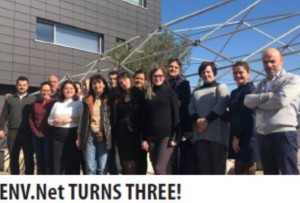 ________________________________________________
________________________________________________
In December 2017. we started with ENV.net 3 : ENV-net factoring the environmental portfolio for Western Balkans and Turkey in the EU Policy Agenda (reference number 2017/394-372)
ENV.net 3 – Serbia team include: Aleksandra Mladenovic –National Coordinator and Manager. In addition, Thematic experts/consultants, on demand, are Prof dr Andjelka Mihajlov and Filip Jovanovic, and Media communication expert, on demend, is Milica Momcilovic.
________________________________________________________________________________
Development of ENV.net in West Balkan and Turkey: giving citizens a voice to influence the environmental process reforms for closer EU integration – EuropeAid/132438/C/ACT/Multi – 2012/306-642 and 2014/351-610 (2012-2016)
The project builds on the experience of an EU-funded project, namely the Environment Forum , implemented in the period 2009-2012, aiming at developing capacities of environmental NGOs to establish a constructive dialogue with national authorities. The present project strategy has been designed to achieve a greater commitment and capacity of a group of CSOs coming from Environment Forum experience and which have agreed on the creation of a new network, the ENV.net, to support the civil activism, give citizens a voice and influence the public reform processes in the approximation to the environment acquis. With the view to further enhance their capacities to work with CSOs and to share experience with other European countries, EEB has accepted to participate and to share its experience. Project objective – Greater commitment and capacity of the ENV.net to give citizens a voice and influence public sector reform processes in the environment sector through analysis, monitoring and advocacy.
Partners for project implementation are: Puntosud , EASD , Co-PLAN , EEB – European Environmental Bureau , ATRC and TEMA . EASD Activity circles represent the scope of our activities.
Project launched site for presentation of activities in all participating countries, as well as facebook page and ENV.net Newsletters.
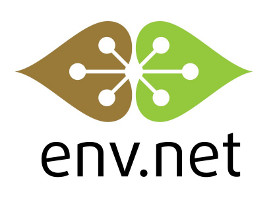 ENV.net 1/2– Serbia team include: Dr Nataša Žugić Drakulić –National Coordinator and Filip Jovanović – project manager , chosen in transparent process by „ Environmental Ambassadors for Sustainable Development“, partner organisation in this project. In addition, National consultant for European integration is Prof dr Andjelka Mihajlov , dr Hristina Stevanović Čarapina is leading expert .
ENV.net 1/2– Serbia team include: Dr Nataša Žugić Drakulić –National Coordinator and Filip Jovanović – project manager , chosen in transparent process by „ Environmental Ambassadors for Sustainable Development“, partner organisation in this project. In addition, National consultant for European integration is Prof dr Andjelka Mihajlov , dr Hristina Stevanović Čarapina is leading expert .
__________________________________
ENV.net Serbia network is functioning : Some of activities could be followed only in Serbian, like calls to participate, and other actions targeted to citizens in Serbia.
**************************************
Highlights: ENV.net publications
- A Guideline of EU Accession Monitoring Tools for CSOs in candidate and potential candidate countries: Chapter 27, (Authors and contributors: Andjelka Mihajlov, Natasa Zugic-Drakulic, Filip Jovanovic, Federico Bastia, Simona Pogliani, Mara Silina, Teida Shehi and Dusko Hristov), Published by Environmental Ambassadors for Sustainable Development with the financial assistance of the EU – ENV.net project document, Belgrade January 2015
- How to influence environmental policy through effective advocacy (Authors: Margherita Tolotto and Mara Silina), ENV.net Advocacy Toolkit, European Environmental Bureau, Brussels, January 2015
- Climate change and challenges of the enlargement (Authors: Anja Kolmuss, Dragana Mileusnic, Zanna Vanrenterghem and Richard Filcak), ENV.net Advocacy Toolkit, European Environmental Bureau, Brussels,September 2016
June 2016: Agenda, WED Messages from Serbia: 12th Regional Conference “Environment to Europe” , REPORT FROM EnE16-ENV.net, BELGRADE, SERBIA
April 2016 – ENV.net Course: CSO Participation in Accession Process , Chapter 27: CSOs participation
March 2016 – New internet portal: Greenweb
January 2016 – Save the date for EnE16-ENV.net Conference ; We participate: Regional Conference: „Sustainability of the FPAs” , Brussels . Water-food-energy-ecosystems nexus assessment in the Sava River Basin – Lessons learned and further steps
October – December 2015 – Ministry support to ENV.net , Event
October – Partnership for Climate Change issue : Serbia’s climate talks – on the way to Paris
June 11 – European Commission Vice-President Mr Maroš Šefčovič had meeting with CSOs in Belgrade. EASD participate!
June 7 – Bicycling-ENV.net promotion in town Gornji Milanovac , Green day in Gornji Milanovac
June 5 – Regional Conference ”Environment to Europe” EnE15 – ENV.net EU Environmental Horizontal Legislation: Methods, Standards and Tools , Invitation , AGENDA , Proc. of papers
May 26, 2015 – Promotional activity
April 21, 2015 – Participation in Public Hearing on Climate Change related challenges in Republic of Serbia
April – THE ELEVENTH REGIONAL CONFERENCE ENVIRONMENT TO EUROPE – ENE15 – ENV.NET acknowledged as the European Sustainable Development Week event
March 22 – Celebrating the World Water Day in Serbia: field visit to Ada Ciganlija
February 2, 2015: Invitation for EnE15-ENV.net Conference launched
January 29, 2015: A Guideline of EU Accession Monitoring Tools for CSOs in candidate and potential candidate countries (ENV.net region): Chapter 27 , document finalized
January , 2015: Promotion of Publication
December 31: Thematic Publication “Environment to Europe”, 2014 ( Tematski zbornik radova “Životna sredina ka Evropi”)
December 12: ENV.net Serbia Seminar: Environmental Education in Schools
November 24-25, ENV.net on the margins of ECF Annual Meeting in Brussels with European Commision
November 4-5 , Regional training on the process of designation of potential Natura 2000 sites
October 30 – Conference “EU accession in the field of environmental protection and the role of local authorities”
October 28 – Ministry of Agriculture and Environmental Protection is co-funded ENV.net project , contract signed
October 22-23, Belgrade: ENV.net training: “EU project design process and Implementation of environmental policy”, Invitation , Agenda , Training
October 2014 – ENV.net brochure published and presented
October 14 – ENV.net related: Participation on Conference “Eco-standards and Education”
October 8 – “Little progress has been made in the areas of environment and climate change”
September 29 – ENV.net Round-table Dialogue for Green Future (ENV.net okrugli sto sa niškim srednjoškolcima “Dijalogom ka zelenijoj budućnosti“) (sub-grant)
September 23-25, Brussels: ENV.net preparatory partnership meeting and Framework Partnership Agreement (FPA) Closing Event for Phase I
September 19-24 , We are following Explanatory Screening for the Chapter 27
August 29 – ENV.net (sub-granting) publication published PUBLICATION : “Species of plants and animals of special conservation concern in EU” , in Serbian
July 27 – Partnership with media – Radio Beograd 2
June 19 – Eco-package initiative as the example environmental education for the future EU citizens
June 5 – CONFERENCE , ENV.net multi-stakeholder Conference on Chapter 27: about 200 participants
June 4 – Meeting with media , Moments from the Conference for Media
May 29, 2014 – ENV.net Serbia Conference organisation on the good track –Agenda for EnE14/ENV.net Conference “Environment to Europe”, June 5, 2014 in SCC – opening at 10:00
May 22-24, 2014 – 4th Partners Meeting in Milan
May 13, 2014 – European Solar Days – participation in promotion of EU environmental values
May 10, 2014 – ENV.net Let us clean up Europe! event: Ada Ciganlija Beograd ; ENV.net Serbia with children, parents and teachers “cleaning up Serbia” , Event in pictures
May 22-24, 2014 – 4th ENV.net Partners Meeting in Milan
May 7-8, 2014 – Some of ENV.net Partners meet in the corridors of ECRAN ECF Meeting
April 25, 2014 – UNEP acknowledged EnE14-ENV.net 2014 Conference as the World Environmental Day Event
April 5, 2014 – Education for future citizens of EU: guest lecturing at the Law Faculty
April 4, 2014 – EU Delegation to Serbia: Consultative Meeting with CSOs on progress towards EU in 2014
Aprl 4, 2014 – We participated to the meeting related to EU-Serbia Civil Society Joint Consultative Committee – JCC
April 2, 2014 – ECRAN NGOs Environment and Climate Change Forum – Evaluation Outcome – Congratulation to ENV.net partners!!!!
April 1, 2014 – Protego and Protecta sign subcontracting contracts
Marc 20-9, 2014 – EASD written contribution to the 2014 Progress Report
March 25, 2014 – Participation on UNECE consultation related to the 3rd EPR for Serbia
March 23, 2014 – ENV.net sub-grants winners announced , ENV.net
March 20, 2014 – We participate on Panel at Faculty of Organisation Sciences – University of Belgrade : Knowledge about Environment
March 9, 2014 – Technical (formal requests) evaluation of sub-grants application finished: 45 projects eligible for further evaluation
March 6, 2014 – Promotion of global activity EARTH HOUR (Marh 29, 20:30-21:30) and call for participation
March 4-6, 2014 – We participate in Zagreb on Workshop on Water-Food-Energy-Ecosystems Nexus Assessment in the Sava River Basin
From February 2014 – EU negotiation process: we are following explanatory screenings
February 26, 2014 – In accordance with procedure, QUESTIONS by potential applicants with our ANSWERS are posted on web site on February 26, at 07:00 , taking in account questions received by February 25 at 23:59
February 20-21, 2014 – EASD-ENV.net Serbia participated in defining the first strategic framework for CSOs development
February 18,2014- Knowledge based advocacy: Environment should be within priorities in the negotiations with EU
February 13, 2014 – Environment in youth policy in Serbia
February 12, 2014 – Meeting with ENVAP2 Project representatives
February 7, 2014 – Participation on Training related the Sector Planning Documents – SPDs
February 1, 2014 – Call of proposals for ENV.net sub-granting in Serbia “EU: we watch and learn to be ready!”
January 30, 2014 – Participation on public hearing by the European Economic and Social Committee (EESC) Study Group
January 30,2014 – Thematic meeting of the SECO mechanism on IPA II programming
January 30, 2014 – Participate in the Mapping of CSOs and other stakeholders in in the process of EU accession negotiations
January 19, 2014 – EASD / ENV.net Team reading of European Parliament Resolution, January 2014
January 07, 2014 – Starting preparation for ENV.net 2014 Round-table / Conference
January 2, 2014 – Attention to ENVIRONMENT in EUROPA DAIRY
_______________________________________________________________
December 23, 2013 – Workshop on environmental values for kindergarten children from Sombor (Minutes) , Participation on meetings in Nature Protection Institute and Agency for Environmental Protection
Decembar 20, 2013 – In media : Promotion of knowledge based information
December 20, 2013 – Environmental Education for future EU citizens , Minutes
December 17, 2013 – ENV.net region news: European Affairs ministers give green light to Serbia’s EU negotiations
December 16, 2013: Workshop for strategic planning of further work SECO mechanism
December 3, 2013 – ENV.net presented to the master students of Faculty of Security Studies
December 2, 2013 – Eye on EU integration process: Parliament of Serbia , Eye on SEE regional cooperation
November 28, 2013 – Meeting FPA project grantees with DG Enlargement representative
November 25, 2013 – Partnership with Media : Partnership agreement with Journalist’ Association of Serbia
Environmental Education of future EU citizens: Activity on November 19,2013
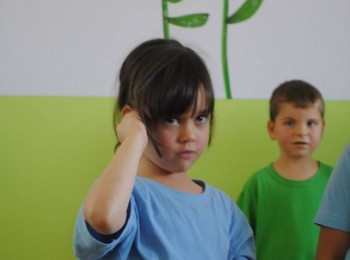 |
Acknowledging the outreach of ENV.net Survey and ENV.net 2013 Roudtable recomendations, EASD – ENV.net Serbia recognized importance of children/youth education for active EU citizenship , through promotion of EU environmental values. We would like to share moments from kindergarten “Pčelice”, from village Šetonje, as promotion event for environmental values in education. With children and teachers, as well as EASD Team, there were Prof dr Ivica Radovic and mr Ljubiša Antonijević, assistant ministers for education and science. |
Partnership with municipality – On November 18., 2013, ENV.net project presented on the Round table in Municipality Vračar (within City of Belgrade).
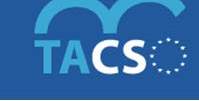 Cooperation with TACSO Serbia – On November 15. 2013, in Belgrade, TACSO Advisory Committee (LAG) organized a consultative meeting with representatives of civil society organizations and networks and Serbian civil society expert community. At the meeting a draft of a document on the assessment needs of civil society in Serbia was discussed.
Cooperation with TACSO Serbia – On November 15. 2013, in Belgrade, TACSO Advisory Committee (LAG) organized a consultative meeting with representatives of civil society organizations and networks and Serbian civil society expert community. At the meeting a draft of a document on the assessment needs of civil society in Serbia was discussed.
 EASD prepared Opinion and contribution to the Draft Strategy Paper for the Republic of Serbia 2014-2020. Through SECO mechanism opinion is sent to Governmental Office for European Integration. Opinion is based on Serbia 2013 Progress Report and Strategy – Reading by ENV.net Serbia Team .
EASD prepared Opinion and contribution to the Draft Strategy Paper for the Republic of Serbia 2014-2020. Through SECO mechanism opinion is sent to Governmental Office for European Integration. Opinion is based on Serbia 2013 Progress Report and Strategy – Reading by ENV.net Serbia Team .
Organisation capacity building process: EASD acknowledged becoming IPEN network Participating Organization
Eye on environmental laws changes: monitoring compliance with EU directives
November 2013. – The third ENV.net partnership meeting in Milan
28. October – Meeting with European Parliamentarians
ENV.net Serbia Team prepared document: Reading of 2013 Progress Report for Serbia and Strategy by ENV.net Serbia Team ( Serbia 2013 Progress Report and Strategy – Reading by ENV.net Serbia Team ).
____________________________________________________
22. and 23 October – Education on sustainable management of lead/chemicals
October 18 – EC Delegation in Serbia, present to relevant CSOs, on October 18, 2013 , Serbia Progress Report 2013, in which the Commission services present their assessment of what Serbia as the candidate country has achieved over the last year.
October 2013 : Participated on different events organized to raise awareness to EU approximation environmental challenges.
Promotion of ENV.net facebook page!
October 2, 2013 – ENV.net team participated at the First SEE Regional Science Promotion Conference (SCIPROM), opened in Belgrade, with the aim to bring together science promotion professionals, practitioners and enthusiasts to share experience and network in order to strengthen the link between science and society in our Region. In the current competitive global environment it is an imperative to enhance economic and social capacities by improving the educational structure of society, inspiring innovation and technological advancement and creating a milieu for appreciation of the value and benefits of knowledge. In the opening address, Minister for Education, Science and Technology development of Serbia underlined, among others the importance of knowledge based actions, as well as the importance of drinking water for development. Conference bring international experts and representatives of international organizations, research and educational institutions, science camps, science communicators, NGOs, private sector and media on board.
This conference justify the path of ENV.net Serbia implementation and development, linking European Integration, Knowledge based activities and sectors : Education, Science and Environment/Natural Resources.
____________________________
Waste management and water management are considered as two important segments of environmental acquis and studies in this area represent an important aspect of ENV.net project. Environmental accession status of Serbia ( waste , water and EIA thematic issues) was presented by EASD team at International Conferences in Vienna (Austria) and Zadar (Croatia), as well as on chemicals at SAICM Regional Meeting (Skopje, Macedonia FYR).
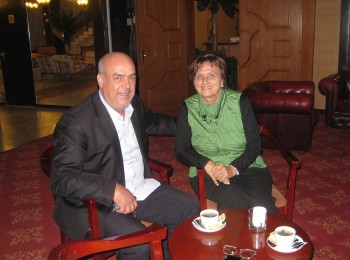 In addition, possible ENV.net partnerships are discussed with other participants and interested CSOs.
In addition, possible ENV.net partnerships are discussed with other participants and interested CSOs.
In Skopje, EASD representative met Macedonian 4x4x4 BB representative on September 26, 2013, to discuss possible enlargement of ENV.net project to Macedonia.
________________________________________
Promotion of ENV.net site in place Join us!
Added value for ENV.net Serbia is EASD activities within the development of Post-Rio+20 Agenda.
Office for Cooperation with Civil Society organized on September 6, 2013 Conference devoted to negotiating Chapter 27 (Environment). Presentation (in Serbian) from the Conference includes: Poglavlje 27 pregovori, Iskustvo R Slovenije, Natura 2000 Ministarstvo, Uloga civilnog drustva u monitoringu, Natura 2000 NGO )
September 2013: ENV.net project presented in the Ministry of Education, Science and Development of Serbia (Meeting of the National Committee for Environmental Education Programs)
August 2013. – Snapshot analysis : While waiting for EC 2013 Progress Report
___________________________________________________________________
EASD research: RETHINKING WASTE MANAGEMENT WITHIN THE RESOURCE-EFFICIENT CONCEPT
EASD research published in the Environmental Engineering and Management Journal , December 2015, Vol. 14, No. 12, 2747-2984.
RETHINKING WASTE MANAGEMENT WITHIN THE RESOURCE-EFFICIENT CONCEPT:
Abstract
The paper aims at supporting and catalysing discussions (and possible options) on how the widely common waste management concept could be efficiently transformed to a level where phasing out residual waste becomes technically feasible. As such, this paper presents thoughts on the (possible) future meaning of term “waste”, but it also addresses the important relationship between the terms “waste” and “level of country development”. Although this research greatly deals with policy issues, the analysis shows that the crucial role in delivering the path of development will be in the hands of chemical and environmental engineers. However, it will be necessary to break the link between economic growth and waste growth/management/prevention.
Key words: developed country, developing country, landfilling, waste management, waste policy, waste prevention
Agenda 2030 and SDGs in the focus of EASD work
Multi-stakeholder partnerships at the national, local, regional and international levels, that are solution-oriented and inclusive of all groups, including women, indigenous peoples and minorities, will be crucial to realizing these joint aspirations and will be a key element of the 2030 Agenda and SDG implementation.
The successful adoption of the 2030 Agenda for Sustainable Development Goals was the result of more than two years of intensive consultation and engagement of all stakeholders.
The UNEP Regional Office for Europe, in partnership with the European Economic and Social Committee and the European Environmental Bureau, organized a multi-stakeholders meeting on the implementation of the 2030 Sustainable Development Agenda, combined with the yearly UNEP Regional Consultation Meeting for Major Groups and Stakeholders on 12-13 November 2015 in Brussels, Belgium. EASD participated ( report).
Sustainable Development Indicators data and development for SEE region is underway through Platform Indicators Development. For Serbia, EASD team is focused on Environmental Sustainability, Science and Technology , Health and Hygiene and Energy and Environment . EASD promote The World Environmental Education Day, having the great event in school “Vuk Karadžić”, Surčin.
The 2nd meeting of the UN Environment Assembly (UNEA) will take place from 23-27 May, 2016 in Nairobi, Kenya. The meeting will be held under the overarching theme: “Delivering on the Environmental Dimension of the Post-2015 Development Agenda.” There will also be a Global Major Groups and Stakeholders Forum (GMGSF) held prior to UNEA-2 on 21 and 22 May 2016. Environmental Ambassadors (EASD) is organisation accredited in UNEP/UNEA.
In the preparatory phase, EASD participated in the process of UNEP Redefinition of its Youth Strategy, familiarise with the interactive version of the Bali Guideline Implementation Guide , reviewing new sustainable development agenda (results from open consultation on ‘grey‘ and “green” indicators are now available ).
The 2030 Agenda for Sustainable Development requested the UN Secretary General, in consultation with Member States, to prepare a report in preparation for the 2016 meeting of the High-level Political Forum, which outlines critical milestones towards coherent, efficient and inclusive follow-up and review at the global level, for consideration of the General Assembly. In order to informally contribute to the reflection, Major Groups and other Stakeholders have been invited to provide their views and inputs on these issues by completing an online questionnaire by 15 November 2015. The inputs and responses received is available on the Sustainable Development Knowledge Platform (our organisation is the member of SDKP). In addition, we keep eye on Open-ended Meeting of the Committee of Permanent Representatives to UNEP (OECPR) and Preparatory meeting for the 2nd Session of UNEA, 14-19 February 2016 – we registered our representative to participate.
EASD participated in the UNEP’s survey on the involvement of Major Groups and Stakeholders in the generation, utilization and dissemination of environmental information developed by UNEP. Below some of the key findings are highlighted:
· 63% of the organizations contributed to the generation of environmental information by UNEP to a moderate, large or very large extent
· Of contributions made, the greatest percentage, 56%, was to UNEP publications.
· 88% have accessed environmental information generated by UNEP; publications were the most common form of information accessed, with assessments and findings, and emerging issues coming a joint second.
· The most common way in which organizations accessed UNEP information was via the UNEP website, with the second most common mechanism being via email.
· 87%, have made use of information generated by UNEP either to a moderate, large, or very large extent. Organizations primarily used UNEP generated information for educational purposes, as a guide to their own work, or for analysis.
· 86% have contributed to the further dissemination of environmental information generated by UNEP, principally during meeting discussions or through posting on social media.
· 65% experienced no difficulties in contributing to, accessing, using or disseminating environmental information generated by UNEP, but for those who did the main issue was with language constraints.
· The most effective mode for organizations to be involved in the generation, access, receipt and dissemination of environmental information generated by UNEP was email; this was followed by the UNEP website and through social media.
· 85% successfully received the type of information they needed from UNEP either to a moderate, large or very large extent.
· Suggestions on how UNEP could improve included:
o greater interaction from UNEP on social media
o improvements to websites to make them more user-friendly
o sending of hard copies of important reports and documents to resource centers
o the use of shorter bulletin messages to facilitate understanding of the public
o greater dissemination
o more translations
o timely information sharing to allow sufficient time for review and comments
o the use of Google hangouts, online workshops
o more active engagement with mass-media (e.g. TV)
We “keep eye” on the multi-stakeholder dialogue will be held on Friday 27 May 2016 from 12:30 hrs to 14.00 hrs, TO BE HELD DURING THE HIGH-LEVEL SEGMENT OF UNEA-2. It will be open to all interested delegations and will be organized as a moderated, interactive dialogue session. The proposed theme for the dialogue is: “Restoring and sustaining healthy ecosystems for people and planet: partnerships to jointly deliver on the environmental dimension of Agenda 2030”.
In February 2016, EASD promote stronger position of Environmental NGOs in the draft UNEP Stakeholders Engagement Policy (SEP) . More in local language
SDGs as the relevant part of the context within which FEE operates
After a long series of intergovernmental negotiations on various themes,which saw a broad participation from major groups and civil society stakeholders under the guidance of the United Nations State Members, the Goals have been adopted on September 25th at the New York United Nations Summit by 193 Member States. In the same occasion, the UN launched their post-2015 development agenda, in which the Goals are integrated. UN Member States, the civil society and private sector contributors will use this new, universal set of goals, targets and indicators to guide development global efforts over the next 15 years in a concerted international action within the broadest, most ambitious development agenda ever agreed at the global level. The 17 Goals and 169 Targets are meant to be action-oriented, concise and easy to communicate, aspirational, global in nature and universally applicable to all countries, while taking into account the different national realities, capacities and levels of development and respecting national policies and priorities.
The Foundation for Environmental Education with its global network thus needs to frame and highlight its role as a stakeholder and trendsetter in the Sustainable Development process, particularly for environmental, educational and eco-tourism matters. The SDGs will define a relevant part of the context within which FEE operates, thus we are driven to reflect our work in the Goals.
FEE through its mission of fostering awareness, knowledge, participation, commitment, skills, actions and creativity on the environment and on sustainable development, shares the core values behind the set of SDGs. The programmes based on Education for Sustainable Development, such as YRE, Eco-Schools and LEAF show a strong link with the educational Goal (SDG 4) and the Goal on global partnership for sustainable development (SDG 17). FEE’s tourism eco-labels, Green Key and Blue Flag, on the other hand, have a focus on making human settlements inclusive, safe, resilient and sustainable (SDG 11) and on implementing tools for monitoring sustainable development impacts for tourism (SDG 12.b).
Thus, FEE as an umbrella organisation aims at reaching objectives as indicated in the SDGs:
– “Ensure healthy lives and promote well-being for all at all ages” (SDG 3).
– “Ensure inclusive and equitable quality education and promote life-long learning opportunities for all” (SDG 4).
– “Ensure availability and sustainable management of water..” (SDG 6),
– “Ensure access to affordable, reliable, sustainable, and modern energy for all” (SDG 7),
– “Conserve and sustainably use the oceans, seas and marine resources for sustainable development” (SDG14), as well as to
– “Protect, restore and promote sustainable use of terrestrial ecosystems..” (SDG 15).
– “Promote sustained, inclusive and sustainable economic growth..” (SDG 8), particularly to “..Implement policies to promote sustainable tourism which creates jobs, promotes local culture and products” (SDG 8.9).
– “Make cities and human settlements inclusive, safe, resilient and sustainable” (SDG 11).
– “Ensure sustainable consumption and production patterns” (SDG 12).
– “Take urgent action to combat climate change and its impacts” (SDG 13).
– “..Promote sustainable use of terrestrial ecosystems..” (SDG 15).
– “Promote peaceful and inclusive societies for sustainable development..” (SDG 16), particularly to build transparent institutions and promote non-discriminatory policies for sustainable development (SDGs 16.6, 16.b) with a positive, proactive, democratic modus operandi and a strong synergic support to civil society and third sector.
– “Strengthen the means of implementation and revitalize the global partnership for sustainable development” (SDG 17) through a geographically spread, multi-stakeholder approach.
Programmes’ overview:
a) YRE: Young Reporters for the Environment is a network of international youth engaged in environmental journalism and Education for Sustainable Development, where the students investigate an environmental problem and report it to the local community, while, at the international level, they may cooperate with young reporters from other countries for sharing information or data, with the aim of proposing a solution and disseminating it.
The most evident link between the Young Reporters for the Environment programme and the SDGs is found in the Goal 4:
“Ensure inclusive and equitable quality educationand promote lifelong learning opportunities for all” and its subparagraphs“..increase … the number of youth and adults who have relevant skills, including technical and vocational skills, for employment, decent jobs and entrepreneurship” (SDG 4.4) with the aim of learning to think critically, “ensure all learners acquire knowledge and skillsneeded to promote sustainable development, including among others through education for sustainable development and sustainable lifestyles, human rights, gender equality, promotion of a culture of peace and non-violence, global citizenship, and appreciation of cultural diversity and of cultures contribution to sustainable development” (SDG 4.7) for being able to connectwith concrete issues.
The environmental educational programme thus also wish for taking “action to combat climate change and its impacts” (SDG13), specifically for what concerns to “improveeducation, awareness raising and human and institutional capacity on climate change mitigation, adaptation, impact reduction, and early warning” (SDG 13.3) through active solution-oriented learning. The programme canalso help to“promote mechanisms for raising capacities for effective climate change related planning and management, in LDCs, including focusing on women, youth, local and marginalized communities” (SDG 13.b).
YRE is a network of young people educating for sustainable developmentand environmental issues in general, thus it also supportsthe aim of many other SDGs, such as:
“Promotesustainable agriculture” (SDG 2).
“Promote well-beingfor all at all ages” (SDG 3).
“Achieve gender equality and empowerall womenand girls” (SDG 5).
“Ensure availability and sustainable management of waterand sanitation for all”, supporting and strengthening the participation of local communities (SDG6)
“Ensure access to affordable, reliable, sustainable, and modern energyfor all”(SDG7)
“Promotesustained, inclusive and sustainable economic growth, full and productive employment and decent work for all”, developing measures that support creativity and innovation (SDG8)
“Build resilient infrastructure, promoteinclusive and sustainableindustrializationand fosterinnovation”enhancing scientific research (SDG9)
“Make cities and human settlements inclusive, safe, resilient and sustainable … Reduce the adverse per capita environmental impact of cities, including by paying special attention to air quality, municipal and other waste management”(SDG 11)
“Ensure sustainable consumption and production patterns”, raising awareness on sustainable development and lifestyles which are in harmony with nature (SDG12)
“Conserve and sustainably use the oceans seas and marine resources for sustainable development”, aiming to preventmarine pollution and protectmarine and coastal ecosystems (SDG14)
“Protect, restore and promote sustainable use of terrestrial ecosystems, sustainably manage forests, combat desertification, and halt and reverse land degradation and halt biodiversity loss”, promoting the implementation of sustainable management of the forests (SDG15)
YRE helps to “Promotepeaceful and inclusive societies for sustainabledevelopment..”(SDG16)
YRE can encourage to “..Revitalize the global partnership for sustainable development” (SDG17)
The journalistic piece can influence the local communities to take action on various environmental matters
b) ECO-SCHOOLS: A global student-led change process in Education for Sustainable Development which involves also teachers’ training, integration in the school curriculum, environmental reviews, action plans, monitoring and evaluation, informing and involving the local community, setting an eco-code focusing on the various environmental themes (water, energy, waste, global citizenship..).
The programme is fully in line with the Goals:
“Ensure inclusive and equitable quality education and promote lifelong learning opportunities for all” increasing the number of youth and adults with relevant skills and ensuring that all learners acquire knowledge for promoting sustainable development, developinga culture of peace and global citizenship while upgrading education facilities to child, disability and gender sensitive ones as to provide a safe, inclusive and effective learning environment for all(SDG 4)
“Make cities and human settlements inclusive, safe, resilient and sustainable”, strengthening efforts to safeguard the world’s cultural and natural heritagewith a focus on schools’ waste management, resource efficiency and climate change mitigation (e.g. Litter Less Campaign) (SDG 11)
“Strengthen the means of implementation and revitalize the global partnership for sustainable development” (SDG 17).
The implementation of the Eco-Schools programme also works towards the achievement of the aim of more SDGs, such as:
“Ensure healthy lives and promote well-beingfor all at all ages” (SDG 3)
“Ensure availability and sustainable management of water and sanitation for all”, improving water quality and water-use efficiency with pollution reduction, minimizing the release ofhazardous chemicals, halving the proportion of untreated wastewater,increasing recycling or safe reuse and ensuring sustainable withdrawals together with the strengthening of the participation of local communitiesfor such purposes (SDG 6)
“Ensure access to affordable, reliable, sustainable, and modern energy for all” increasing the share of renewable energy and energy efficiency, with the result of creating also savings (SDG 7)
“Promote sustained, inclusive and sustainable economic growth, full and productive employment and decent work for all”with the improvement of resource efficiency in consumption and production as to endeavour to decouple economic growthfrom environmental degradation (SDG 8)
“Build resilient infrastructure, promote inclusive and sustainable industrialization and foster innovation” (SDG 9)
“Ensure sustainable consumption and production patterns”, using the natural resources efficiently, reducing the waste generation (including the food waste) and managing sustainably the chemical products (SDG 12)
“Take urgent action to combat climate change and its impacts”specially improving education, awareness raising and capacity on climate change mitigation, adaptation, impact reduction and early warning (SDG 13)
“Protect, restore and promote sustainable use of terrestrialecosystems..” (SDG 15)
“Promotepeacefuland inclusivesocietiesfor sustainable development… and build effective, accountable and inclusive institutions at all levels” highlighting the theme ofsocial justice(SDG 16).
c) LEAF: Learning About Forests wants to encourage environmental education through awareness raising among students, teachers and the wider school community, to increase knowledge about the key role forests play for sustainable life on our planet, reflecting their cultural, ecological, economic and social functions, with themes as biodiversity, climate, products or services, codes and myths.
The key Goals linked to the Learning About Forests programme are:
“Ensure inclusive and equitable quality education and promote lifelong learning opportunities for all”, increasing the number of youths and adults who have relevant skills and ensuring that all learners (referring to the whole school community) acquire knowledge and skills needed to promote sustainable development, including through education for sustainable development and lifestyles in harmony with nature (SDG 4)
“Ensure availability and sustainable management of water..”, protecting water-related ecosystems and supporting the participation of local communitiesfor improving water management(SDG 6)
“Protect, restore and promote sustainable use of terrestrial ecosystems, sustainable manage forests, combat desertification, and halt and reverse land degradation and halt biodiversity loss”, ensuring a sustainable use of terrestrial and inland freshwater ecosystems and their services, including their biodiversity, in particular forests, wetlands mountains and drylands, preventing the extinction of threatened species(SDG 15)
The principles behind LEAF are compatible with the aim of more SDGs:
“End hunger, achieve food security and improved nutrition, and promotesustainable agriculture”, implementing agricultural practices, such as the tree-planting events, which help maintain ecosystems and progressively improve land and soil quality (SDG 2)
“Ensure healthy lives and promote well-being for all at all ages” (SDG3)
“Ensure access to affordable, reliable, sustainableand modern energyfor all” (SDG7)
“Promote sustained, inclusive and sustainable economic growth, full and productive employment..”, endeavouring to decouple economic growth from environmental degradation and devising policies that encourage sustainable tourism which promotes local culture and products, such as jobs related to the forest, while learning to respect the forest community as well as its myths, laws and codes (SDG8)
“Make cities and human settlements inclusive, safe, resilient and sustainable”, strengthening efforts to protect and safeguard the world’s cultural and natural heritage while supporting positive links between the urban and the rural areas as to widen the access to inclusive green and publicspaces (SDG11)
“Ensure sustainable consumption patterns” through relevant information and awareness for achieving sustainable management and efficient use of natural resources (SDG12)
“Take urgent action to combat climate change and its impacts” improving education and awareness raising on climatechange and the role of forests (SDG13)
“Strengthen the means of implementation and revitalize the global partnership for sustainable development” (SDG17).
d) BLUE FLAG: The world’s biggest voluntary eco-label for beaches, marinas and eco-tourism boats works towards sustainable development through compliance with criteria dealing with environmental education and information, environmental management, water quality, safety and other services.
The principles and rules of the programme comply with the content of many Goals:
“Ensure availability and sustainable management of water and sanitation for all”, improving water quality with pollution reduction and minimization of hazardous chemicals release, increasing recycling, safe reuse and water-use efficiency through the usage of sustainable withdrawals as to protect water-related ecosystems also with the support and participation of local communities (SDG 6)
“Promote sustained, inclusive and sustainable economic growth, full and productive employment and decent work for all”improving the resource efficiencyin consumption while devising and implementing policies to promote sustainable tourism which creates job, promotes local culture and products.Blue Flag focuses as well on the protection of labour rights together with the promotion of a safe and secure working environment and the prohibition of child labour (SDG 8)
“Build resilient infrastructure..”upgrading it as to be sustainable and equipped with clean technologies (SDG 9)
“by 2030 empower and promote the social, economic and political inclusion of all irrespective of age, sex, disability, race, ethnicity, origin, religion or economic or other status”with the aim of reducing inequalities and discriminatory practices for wages as social protection policies (SDG 10.2)
“Make cities and human settlements inclusive, safe, resilient and sustainable”enhancing capacities for participatory and sustainable human settlements as to strengthen the efforts for safeguarding the world’s cultural and natural heritage while providing universal access to the public spaces particularly for women and children, older persons and persons with disabilities(SDG 11)
“Ensure sustainable consumption and production patterns”for the efficient use of natural resources, through a sound management and reduction of chemicals and wastes and the promotion of sustainable public procurement practices (SDG 12)
“Conserve and sustainably use the oceans, seas and marine resources for sustainable development”preventing and reducing marine pollutionalso from land-based activities, addressing the impacts of ocean acidification and conserving coastal and marine areas. Blue Flags also contributes in increasing the economic benefits to SIDS and LDCs with the sustainable use of marine resources through tourism (SDG 14)
“Protect, restore and promote sustainable use of terrestrial ecosystems… halt and reverse land degradation and halt biodiversity loss” for halting the loss of biodiversity and preventing the extinction of threatened species, also through the integration of ecosystem values into local planning policies (SDG 15).
The implementation of the Blue Flag programme also work towards the aim of several more SDGs:
• “Ensure healthy lives and promote well-being for all at all ages” (SDG3)
• “Ensure inclusive and equitable quality education and promote lifelong learning opportunities for all”as education has a central role in the programme and reaches out for all the persons involved in it as well as for theusers (SDG4)
• “Achieve gender equality and empower all women and girls”(SDG5)
• “Ensure access to affordable, reliable, sustainable,and modern energy for all” to help increasing the share of renewable energy and energy efficiency(SDG7)
• “Take urgent action to combat climate change and its impacts”(SDG 13)
• “Promote peaceful and inclusive societies for sustainable development..”enforcing non-discriminatory policies for sustainable development (SDG16)
• Strengthen the means of implementation and revitalize the global partnership for sustainable development”through a multi-stakeholder partnership, which involves also public partnersand local authorities,where knowledge and expertise are shared (SDG17)
e) GREEN KEY: This eco-label for tourism facilities (hotels, campsites, small accommodations, tourist attractions and restaurants) is a voluntary award that aims at contributing to prevent climate change and reach sustainable tourism by awarding and promoting best practice, with the goal of changing the environmental practices at the awarded establishments but also the behaviour of tourism actors, including guests, staff, suppliers, authorities, local communities so to involve them in increasingly safeguarding their own environment. The focus is on themes such as environmental management, water, waste and energy saving, involvement and awareness of guests and staff, management of food and beverage and open spaces.
For what concerns the part of the programme related to environmental management, the Goals mainly involved are:
“Ensure … sustainable management of water..” improving its quality, having the proportion of untreated wastewater, increasing recycling, safe reuse and sustainable withdrawals of freshwater (SDG 6)
“Build resilient infrastructure, promote inclusive and sustainable industrialization and foster innovation”setting rules for developing or upgrading quality infrastructures to support economic development and human well-being for an increased resource use efficiency and greateradoption of clean technologies (SDG 9)
“Make … human settlements inclusive, safe, resilient and sustainable”paying attention to air quality, indoor environment and waste management as to tackle climate change(SDG 11)
“Ensure sustainable consumption and production patterns”with rules for achieving sustainable management of natural resources,respecting eco-criteria for food and beverages, reducing waste generationand achieving environmentallysound management of chemicals (SDG 12).
This way the programme “develops and implements tools to monitor sustainable development impacts for sustainable tourism which creates jobs, promotes local culture and products” (12.b).
As an eco-tourism programme focused on the environmental awareness of staff and guests, the Goals principally involved are:
“Ensure healthy lives and promote well-being..” where the programme has to encourage the users to take part in green activities (SDG 3)
“..ensure all learners acquire knowledge and skills needed to promote sustainable development, including among others through education for sustainable development and sustainable lifestyles, human rights..” as part of the “educational Goal” (number 4), whereby the learners are the recipients of the environmental information expected in the implementation of the programme (SDG 4.7)
“Promote sustained, inclusive and sustainable economic growth, full and productive employment and decent work for all”, as the Green Key programme sets Corporate Social Responsibility and safety rules for the workers(SDG 8)
“Take urgent action tocombat climate change and its impacts”through a reduced environmental impact but also through the improvement of education and awareness raising for both the facilities’ staff and users (SDG 13)
“..revitalize the global partnership for sustainable development” (SDG 17).
ACUNS Summer Workshop 2014: Local Justice, Global Standards and Critical Contemporary Challenges
As an institutional member of ACUNS for the Environmental Ambassadors for Sustainable Development, we are spreading the word to potentially interested students and junior faculty about the upcoming 2014 Summer Workshop organized by ACUNS and the American Society of International Law. The Workshop is an advanced-level research seminar that brings together 10 young scholars and practitioners with 10 staff members of the United Nations Secretariat.
The workshop will take place at The Hague Institute for Global Justice in The Hague, The Netherlands, and is intended to include meetings and guest lectures, site visits and/or other forms of exchanges, with several related Hague-based international bodies and agencies. The Workshop is an excellent opportunity for young scholars and practitioners to network and enhance their knowledge and applied skills in the analysis of topics relating to “Local Justice, Global Standards and Critical Contemporary Challenges.”
Selected participants will receive economy class return air travel between their location and the workshop site, accommodations and some meals for the duration of the workshop. More information on the workshop
ENV.net snapshot analysis: While waiting for EC 2013 Progress Report
ENV.net snapshot analysis
Legislation: In terms of the degree of compliance with the EU environmental acquis, intense legislative activity of the Ministry in charge of Environment and other institutions with responsibility in this area has led to a significant level of transposition of the relevant EU regulations. According to the Progress Monitoring Report for the year of 2012, the majority of EU directives relating to the so-called horizontal issues, nature protection, management of chemicals and noise are completely or almost completely transposed into national legislation. In other areas (air quality, waste management, water protection and industrial pollution control) the bulk of EU legislation has largely been transposed into national legislation. With regard to the obligations of the Republic of Serbia as a non-Annex 1 country in the UN Framework Convention on Climate Change and the complexity and cost of implementation of these regulations, the compliance with the acquis in the climate package has just started. National Environmental Approximation Strategy, with the assumption that the Serbia will be a member of the EU by 2019, provides for the achievement of full transposition of most of the acquis by the end of 2014.
Administrative and institutional capacity: The existing administrative capacity, especially at the local level are assessed as insufficient for adequate implementation. Given the complexity of the environmental acquis, and the fact that the jurisdiction of the EU is divided between a numbers of institutions in this area, there is a strong need to further strengthen inter-agency cooperation and coordination.
Environmental infrastructure: Given the state of the infrastructure, as well as the experience of the new EU member states in this process, the Strategy estimates that full implementation of EU regulations will be completed by 2030, and that the total cost of full implementation of EU legislation in the field of environment will be around 10.6 billion euros.
Financial investments: Given the institutional complexity and multidisciplinary nature of the field of environment, full transposition of the acquis may require a longer time frame, especially in the case of directives that require large financial investments (heavy investment directives).
Year 2013: The activities in the sector stagnated in 2013, and it is to be seen how it will be reported in the 2013 Progress Report, as well as to see the further “speed” to implement commitments in environmental sector.
EASD participated in the process towards Progress report for 2013 (2013-Progress-Report-EASD-contribution).
More than 120 participants at EnE13 conference/ENV.net Roundtable: 10 June, 2013 in Belgrade
The main messages from this participatory ENV.net event are: environmental sector activities should be knowledge based, and education for environment and sustainable development should be priority. Capacities and continuity is very important for inclusion environment in other sectoral policies. Conference is institutionally supported by Ministry of Energy, Development and Environmental Protection and Ministry of Natural Resources, Mining and Spatial Planning, as well as National Commision for UNESCO. Draft Agenda ( Agenda FINAL on 06 06, strane 2-8 ) and CD Proceeding of Papers are published. This Conference is UNEP WED event.
At the opening session, Mrs. Prof. dr Zorana Mihajlović, Minister of Energy, Development and Environmental Protection of Republic of Serbia, Mr. Christoph Eichen, First Secretary Economic Cooperation, Embassy of Germany in Serbia, Mr Andrew Headey, EC Delegation in Serbia, Mr Jürg Staudenmann Deputy Resident Representative UNDP Serbia, SEIO Representative, European Integration Office, Government of the Republic of Serbia, Mr. Prof dr. Ivica Radović, Assistant Minister, Ministry of Education, Science and Technological Development of the Republic of Serbia, Mr Klaus Schmidt – Team Leader of IMPACT project – Deutsche Gesellschaft für Internationale Zusammenarbeit (GIZ) GmbH, Representative of Eptisa Regional Office for SEE, as well as Mr Dušan Stokic of Serbian Chamber of Commerce and Industry, shared the views related environmental sector and EU Integration. Event is officially oppened by Mr. Goran Trivan, Secretary for Environmental Protection, City of Belgrade.
Municipal Infrastructure Support Programme (MISP), EU-IPA Project, EPTISA, is presented by Dragana Vasić, Deputy Team Leader. MFA, LCA and Cleaner Production as Analitical Tools in Environment are presented by , prof. dr Hristina Stevanović Čarapina, IMPACT project- Deutsche Gesellschaft für Internationale Zusammenarbeit (GIZ) GmbH representative.
The Importance of the Participation of Civil Society Organizations in Decision-Making Process is addressed by Milena Banović, Office for Cooperation with Civil Society, Government of the Republic of Serbia Representative .
Analysis of current status of EU Environmental Integration and ENV.net project is presented by Prof dr Nataša Žugić Drakulić, National Coordinator, ENV.net Project .
Coordinator for Conference is Doc dr Dunja Prokić. Conference chair person is Prof f dr Andjelka Mihajlov.
Conference is supported by: Eptisa Regional Office for SEE, Hemofarm fond i Coca Cola Hellenic.
Selected presentation: Dragana Vasić EnE13 -MISP for Serbia
More selected presentations in Serbian.
Minutes from event are posted in gallery.
Reported by ACUNS, UNEP, FEE.
———————————————————————————————————————————
On behalf of Organizing Committee of the ninth Regional Conference “Environment to Europe-EnE13”, we want to inform you that the conference will be held on 10 June, 2013, presenting one of the events for World Environment Day (UNEP), as well as conference supporting EU accession process in sector Environment through project “Development of the ENV.net in West Balkans and Turkey: giving citizens a voice to influence the environmental process reforms for closer EU integration”. Serbian Ministry of Energy, Development and Environmental Protection acknowledged the importance of this Conference.
The theme for this year’s World Environment Day celebrations is Think.Eat.Save. Think.Eat.Save is an anti-food waste and food loss campaign that encourages you to reduce your foodprint.
Focus thematic issue this year is Local Environment. Each year EnE Conferences have different thematic focus.
We are inviting you to active participate on the Conference Environment to Europe – EnE13, either by preparing and presenting your paper, or by contributing as an auditor and participant (f application form_EnE13, Gidelines for paper preparation EnE13) .
Invitation is also distributed through FEE and ACUNS.
Application forms (with or without paper) and abstracts-papers send using email contact: conference.ene13@
Important dates:
Deadline for submission of applications form (for participants wishing to participate with paper): April, 15th
Deadline for submission of abstracts: April, 25th
Abstract acceptance notification: May, 6th
Deadline for submission of paper (extended abstracts): May, 15th (3-6 pages, in English or in Serbian / other language from former Yugoslavian Republics with Abstract in English)
Paper acceptance notification: May, 27th
Early registration deadline: May, 27th
Late registration deadline: May, 31st
Deadline for submission of application form without paper: May, 31st
Conference: June, 10
Participation fee :
Registration fee paid by May, 23 is 55 €
Regular price registration fee is 100 €
Payment: for details / account, please contact organizers by Email
Students are exempt from paying the registration fee.
Conference (EnE conferences) contributes to: EU and Accession, Regional Cooperation, International Cooperation, UNEP promotion , represent Scientific and other Conferences, Educational Signals and Courses, Scientific Signals and Projects, Promotion of Science, as well as Environmental Experts’ Networking
_______________________________________________________________________________________________________
Projects 2004-2011
- Sustainable Development and Environment towards EU: “EnE – Environment to Europe” Conferences 2005, 2006, 2007, 2008, 2009, 2010, 2011, in cooperation with Serbian Chamber of Commerce
- E-communication standards , 2011, supported by Ministry of Environment and Spatial Planning
- “Support to the Department of Planning, Programming, Monitoring and Reporting on EU Funds and development assistance to the Office for European Integration of Serbia, for establishing a partnership to promote the use of international assistance “, participant as the member of leading SEKO Consortium for Environment and Energy, 2011 ,
- Ecological footprint: analysis and training, project supported by UNESCO, 2011
- Possible aspects of environmental protection and natural resource management for Rural Development, supported as advisory project in the “Project on Transitional Agriculture Reform,” World Bank , 2011, 2011/2012, the Ministry of Agriculture, Forestry and Water Management of the Republic of Serbia
- Environment Forum , project supported by EC (DG Environment)
- Analytical study of the impact of air pollution on the population in selected urban locations (Pancevo, Vrsac, Bor), (participation in the project with the questioning of citizens in selected locations on the subject), a project supported by the ministries responsible for the environment and for science
- Hazardous Waste Management, TAIEX DG Enlargement INFRA 32384 project, 2009
- Say Yes to Palilula , project supported by City of Belgrade Municipality Palilula
- Modify habits – keep Belgrade clean!, the project supported by the Secretariat of Environment of Belgrade
- Hit the right tone by use environmentally friendly rules , project supported by City of Belgrade Municipality Vracar
- Regional environmental advocacy and cohesion of the Western Balkans (abbreviation: REA), Project supported by the Embassy of Nederland (2009-2011) , REA Project Snapshots , Courses
- Children – the guardians of municipality, project supported by City of Belgrade Municipality Vozdovac
- Local Environmental Security (abbreviation: LES), project supported by OSCE in Serbia, LES Brochure
- Keep it healthy, keep it green, keep it European , project supported by NDI
- Involvement of NGOs in Serbia in the research of renewable energy sources, a project supported by the EU
- My Belgrade – My Environment , the project supported by the Secretariat of Environment of Belgrade
- Local strategic planning , project supported by City of Belgrade Municipality Stari Grad
- Technology Transfer Partnerships, project supported by CIDA
- Sustainable development and environmental leaders for tomorrow, 2006/2007, MATRA
- Building a common ‘green’ future in Europe (Regional Initiative for cohesion in the field of environment), project supported by Open society Fund
- RENCO – Regional Environmental Cohesion: Towards sustainable development strategy for urban South-East Europe, project supported by Sida and Ministry of Environment
- Women as the Voice for Sustainable Development and Environment , project supported by CIDA, WAVE_Report_2007-draft
- Education courses for provincial and local authorities on public participation in decision-making related to the Environmental Impact Assessment and Strategic Impact Assessment , Project supported by Ministry of Environment


